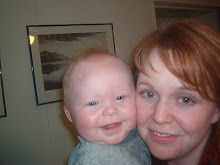This week we studied Skinner's behaviorism theories and I read a lot of intelligent blog posts about learning from my classmates. I don't think that my definition of learning has changed, but I think that there are a few more things that I can add to my original definition. I believe that learning MUST be attached to some prior knowledge. This is so crucial especially for younger students. Just today I was teaching a lesson about writing in one of my English classes. We were talking about "writing" in very broad terms, both narrative and expository. We started talking about the act of writing recipes in the foods class. One girl raised her hand and said, "I just don't understand how you can make a recipe into a story. That doesn't make sense." I thought that was a strange comment and when we finally got to the bottom of it, this girl had no prior knowledge of "writing" in the expository sense. She had always defined "writing" as creating poems and stories. It took just a second to go back and give these students some prior knowledge of writing in all forms.
I especially appreciated the idea of prior knowledge when I did the readings about Skinner’s theories. An emphasis soley on external behavior seems one-dimensional to me. Of course students need positive and negative reinforcement, but I think that there should be a balance. I appreciate Skinner's theories, but above all, I’m looking forward to reviewing all learning theories so that I can use a balance of these in my classroom.
Subscribe to:
Post Comments (Atom)

I think you make a very interesting point about learning needing to be attached to prior knowledge. I have had similar instances in my classroom where students have lacked the prior knowledge to fully understand a particular concept being taught. I also agree that Skinner's theories are important, but there are others important to achieving a good balance.
ReplyDeleteI think that you are right saying your definition did not change is the same reason you posted, it revolves around your prior knowledge. You understand learning from other experiences and now you are adding to your knowledge.
ReplyDeleteAmy,
ReplyDeleteI am all about trying to connect prior knowledge with something new. However, as a teacher that has to teach in technical terms (computers) sometimes it's hard to find ways to connect prior knowledge to new stuff when some of your students know very little about computers at all. I am also interested in learning more theories and creating a "toolbox of tools" to use in the classroom. Thanks for your post!
well, I wouldn't say Skinner totally disregarded prior knowledge, he would just call it prior behavior....you have to start with a behavior that students can do already
ReplyDeleteAmy: it is interesting that you talked about prior knowledge. I am not sure why but this has always been a solid concept among my students, at least as far as I have observed. I usually come across this concept in reading as we use the readers' skill of comparing "text to self". I ask kids questions about the book and how they relate to it then say " this is your prior knowledge" . It seems to sink in. As I was teaching a book adn not reading strategies I did not stop to assess whether they really understood.
ReplyDeleteIt is interesting, too, that I just responded to David Mellinger's blog (week 3) where he talked about learning in a way that enhances a student's experience and stays with them. I commented there that I tend to talk and my example above was just that, more talking. I'd like to get to where I let students experience and I talk less. I think sometimes that I should have pursued a career in acting, specifically monologuing! Not that I am giving up on teaching, or putting myself down, actually this just gave me an idea for my professional goal for this year.
I was also curious as to your comment about Skinner's theory being one dimensional. Do you mean that he is only looking at one way of handling behavior?